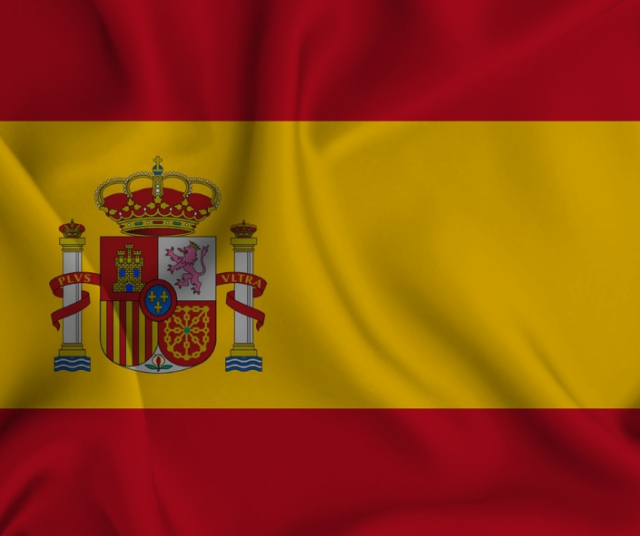The Hispanic Festival is a celebration of great importance in Spain , which takes place on October 12 . This festivity commemorates the historical and cultural legacy of Spain, as well as the diversity of Spanish-speaking countries around the world.
It might interest you: Calendar October 2023 - Spain
The historical origin of the Fiesta de la Hispanidad
The historical origin of the Fiesta de la Hispanidad dates back to October 12, 1492, the date on which Christopher Columbus arrived in America during his expedition sponsored by the Catholic Monarchs of Spain, Isabella I of Castile and Ferdinand II of Aragon. This milestone marked the beginning of the exploration and meeting of cultures between Europe and America, which had a significant impact on world history.
October 12 is considered a key moment in the history of Spain and its colonial legacy in America. During the period known as the "Conquista," the Spanish explored, colonized, and established ties with the indigenous peoples of the Americas. This process had a lasting influence on the culture, language, and society of Spanish-speaking countries. Initially, October 12 was celebrated in Spain as Columbus Day, focusing on the common heritage of the peoples that emerged from the encounter between Europe and America. However, over time, the holiday evolved into the Fiesta de la Hispanidad, highlighting cultural diversity and unity among Spanish-speaking countries.
The Fiesta de la Hispanidad became an occasion to honor the historical and cultural legacy shared by Spanish-speaking countries, and to celebrate the Spanish heritage and the influence of the Spanish language in different regions of the world. The festivity seeks to highlight the diversity of cultures and traditions present in Hispanic countries and foster unity among them. It is important to note that the Hispanic Festival has also been the subject of debate and criticism, especially in relation to the historical aspects of colonization and the impacts on indigenous and Afro-descendant cultures. In many places, this date has been redefined as the Day of Indigenous Resistance or the Day of Cultural Diversity, seeking to recognize and value the multiple historical and ethnic perspectives present in Spanish-speaking countries.
Celebrations throughout Spain
The Fiesta de la Hispanidad is celebrated throughout Spain with a series of events and activities that honor the cultural diversity and unity of Spanish-speaking countries. In Madrid, the capital, a military parade known as the National Holiday Parade takes place, with the participation of the Armed Forces and the display of aircraft and military vehicles.
Other important cities such as Barcelona, Seville and Valencia also organize parades and celebrations, where music, dance and folkloric performances are protagonists. In addition, there are exhibitions, concerts, conferences and cultural events that highlight the richness and diversity of Hispanic cultures.
Cultural diversity and historical legacy
The Fiesta de la Hispanidad in Spain not only celebrates the diversity of Spanish-speaking countries, but also highlights the shared historical legacy between them. During this festivity, activities are carried out that highlight the influence of Spanish culture in Latin America, as well as the influence of indigenous and African cultures on Hispanic identity.
Gastronomy also plays an important role in the celebration of the Fiesta de la Hispanidad. You can find restaurants and gastronomic fairs that offer typical dishes from different Spanish-speaking countries, allowing visitors to delight in a variety of flavors and culinary traditions.
The Hispanic Festival as an inclusive event
This celebration seeks to promote inclusion and mutual understanding between the different Spanish-speaking cultures. In addition to highlighting common heritage, it also focuses on the importance of respecting and valuing diverse cultural and ethnic identities.
Throughout the years, the Fiesta de la Hispanidad has become a space for the expression of solidarity, cultural exchange and the promotion of dialogue between Spanish-speaking nations. Educational activities, conferences and round tables are organized that promote intercultural awareness and international cooperation.
This festival has a significant impact on tourism and the economy in Spain. Every year, thousands of national and international visitors attend the celebrations in different cities of the country. This boosts the tourism sector, generating income for hotels, restaurants, souvenir shops and other local businesses. In addition, it strengthens diplomatic and cultural ties between Spain and Spanish-speaking countries. Commercial, academic, and artistic exchanges are encouraged during this festivity, promoting greater understanding and collaboration between the nations involved.
Although this is a vibrant and meaningful celebration, it also faces challenges today. Cultural diversity and migration have given rise to an increasingly multicultural society in Spain. This raises the need to promote an inclusive celebration that reflects and values the ethnic and cultural diversity of the Hispanic community.
Likewise, it is important to highlight the importance of addressing the historical aspects of colonization and promoting an open dialogue on the consequences of this process on indigenous and Afro-descendant cultures. This will contribute to a more inclusive and respectful Fiesta de la Hispanidad, which values and celebrates diversity and equality.
